Northeastern professor David Lazer explains how to fix democracy at the Robert D. Klein Lecture
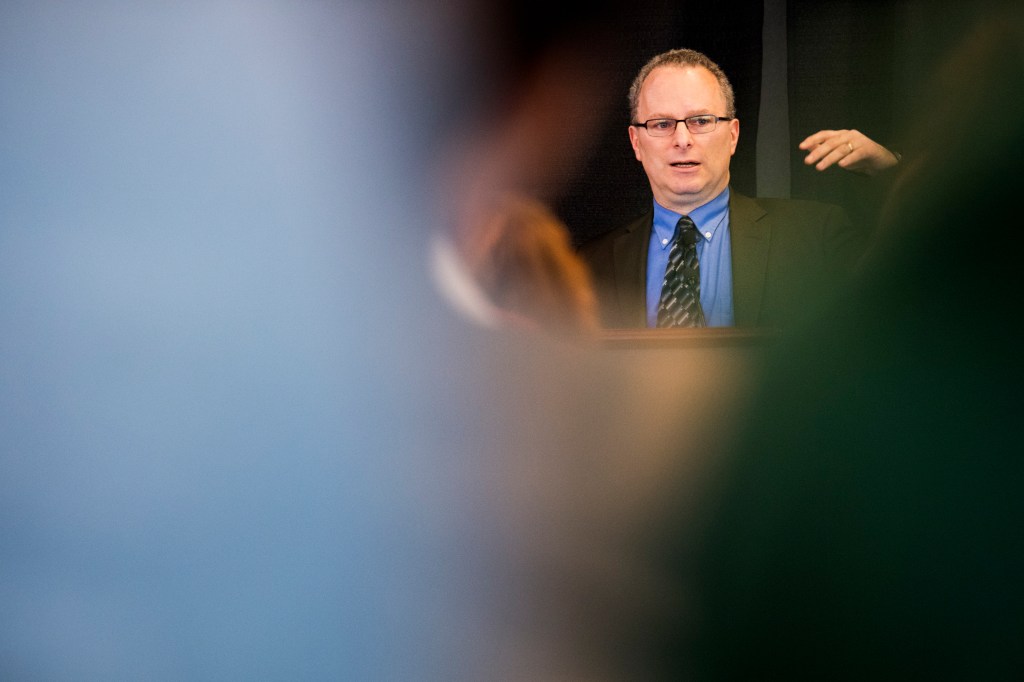
To find ways to fix U.S. democracy, Northeastern professor David Lazer “did Democracy like a drug,” he said.
At the 55th annual Robert D. Klein Lecture on Thursday, Lazer described the current state of U.S. democracy with an image of a dumpster ablaze.
Using an experimental setup similar to that used by pharmaceutical companies, Lazer and his colleagues were looking for ways to solve some of the biggest issues threatening democracy in the U.S. They found an answer.
Lazer his colleagues employed a combination of big data analysis and experimental methods to study U.S. democracy and determine what was working and what wasn’t. They found that polarization is on the rise, trust in the news media is down, and inequality in income and wealth are more drastic than they’ve been in at least the last 40 years.
Lazer, who is the Distinguished Professor of Political Science and Computer and Information Sciences as well as co-director of the NULab for Texts, Maps, and Networks at Northeastern, delivered the address as this year’s Klein Lecturer.
The award was established in 1964, and is given each year to a member of the teaching faculty who has contributed with distinction to his or her field of study. The lectureship was renamed in 1979 in tribute to the late Robert D. Klein, professor of mathematics, chairman of the Faculty Senate Agenda Committee, and vice chairman of the Faculty Senate.
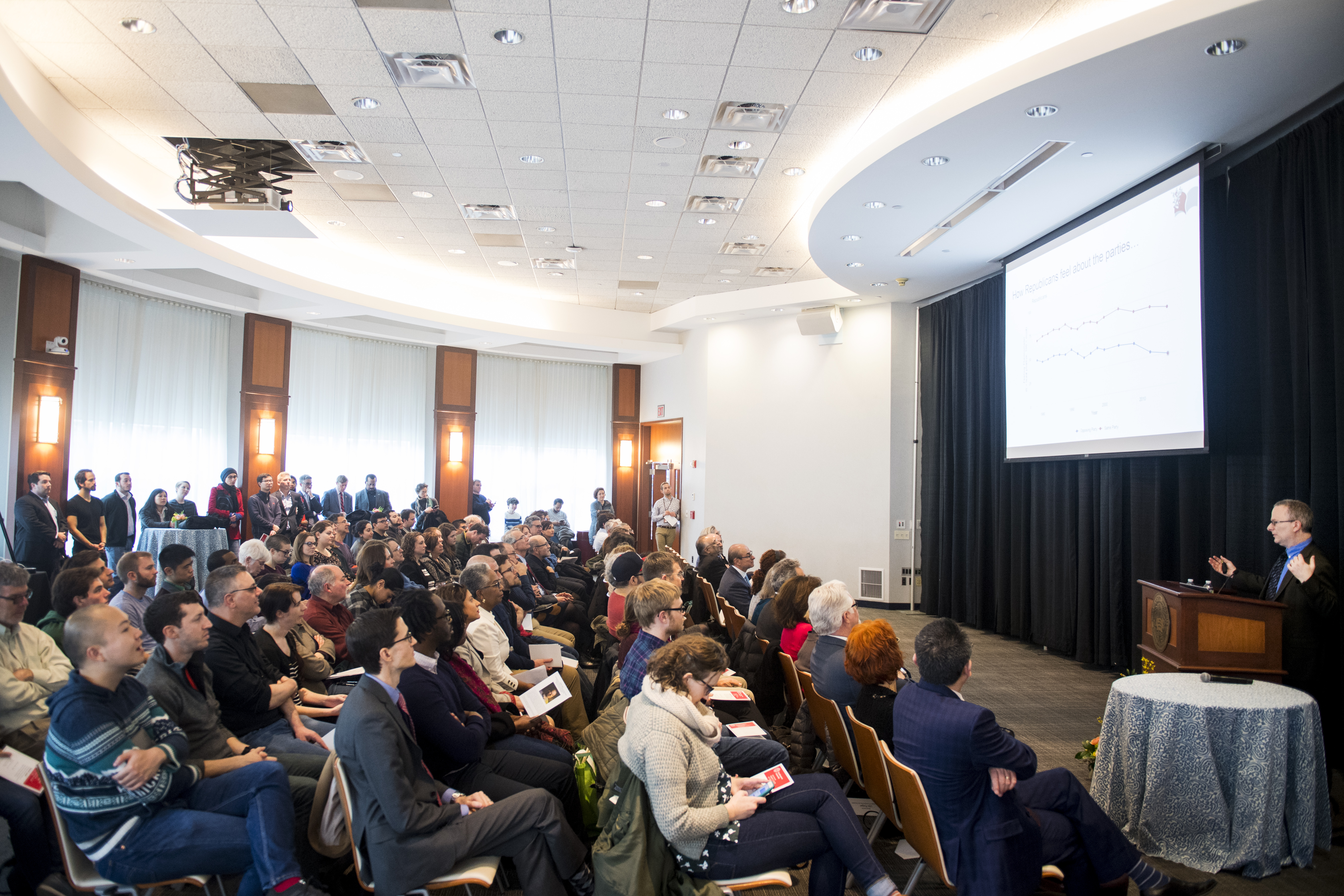
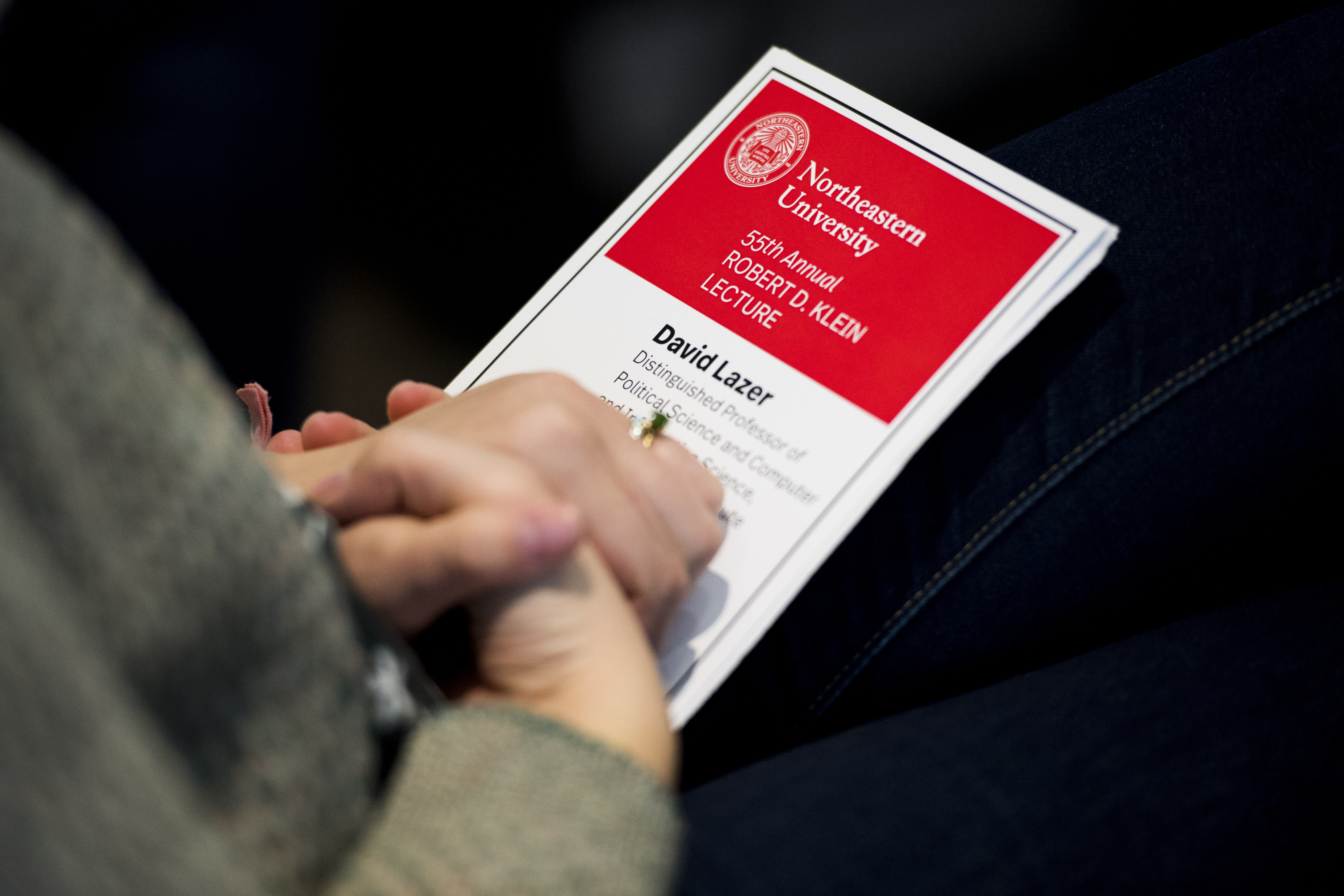
As people—including constituents and elected officials—become more entrenched in their political camps, it’s become less likely that people are having conversations that don’t enforce their existing political beliefs, Lazer said.
A “seismic shift” in the news media landscape, caused by the ubiquity of social media and search engines that serve up results based on algorithms rather than by source, is eating away at the traditional institution that held government officials accountable, something that’s required to make a democracy run well, Lazer said.
But this can be fixed, he said, and one way is to rewire the process by which constituents talk to each other and to their elected officials.
And this is where Lazer and his colleagues tested democracy like a drug.
In a new book, Politics with the People: Building a Directly Representative Democracy, Lazer describes how he and two other researchers enlisted members of Congress to meet with constituents in a series of online town hall-style meetings.
The meetings were a success. Lazer and his colleagues found that the people who logged on had high-quality discussions, were learning about political issues, and were “more representative of eligible voters” than actual voters tend to be, he said.
“If you listened in on any of these meetings—and I listened to all of them—you’d feel really good about our democracy,” Lazer said.
He suggested other ways to fix democracy—for example, by “attending to internet giants.”
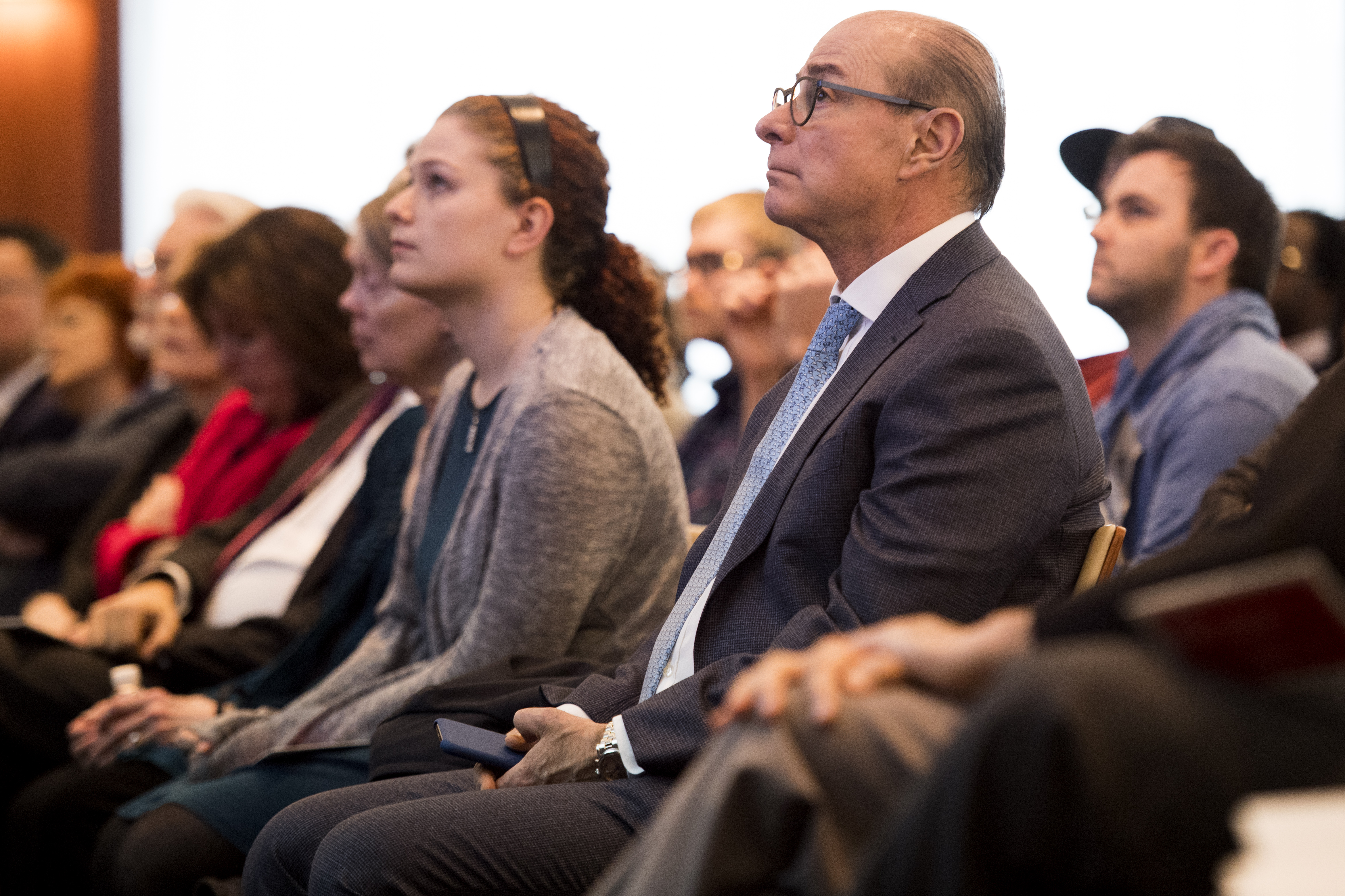
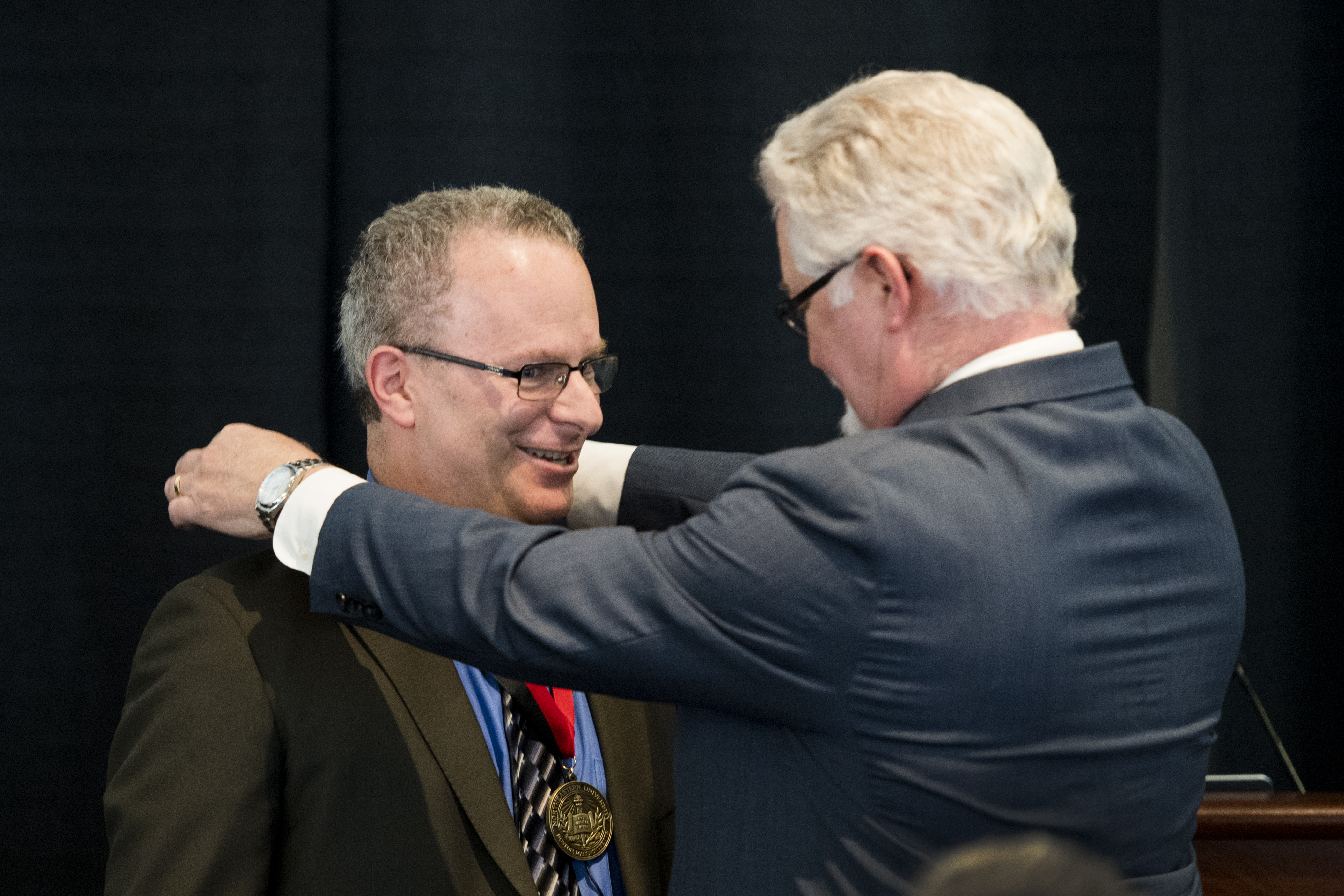
In past research, Lazer has found that 5 percent of all news content on Twitter is fake, but that it’s almost entirely driven by a select few users who flood the social medium with posts. He’s found that 80 percent of fake news comes from 0.01 percent of accounts.
“We need to consider what kinds of controls could be put into the sharing of content by these media companies,” Lazer said.
He also suggested that universities can be important sources of civic information, and can team up with established news organizations to provide analysis of big datasets—a service that many news companies don’t have the resources to build themselves.
“My lab has more capacity in this regard than just about any newsroom in the world,” Lazer said, “and that’s mind-boggling, because these are the institutions we rely upon for this sort of information.”
Lazer acknowledged the “troubling” state of democracy, but urged those gathered to see it as an opportunity for change.
“There are possible paths forward to strengthen the institutions of democracy,” Lazer said. “It’s a question of choices; we shouldn’t just let these things happen to us. And indeed the people in this room, we’re agents, we have the capacity to change the world.”
For media inquiries, please contact media@northeastern.edu.





